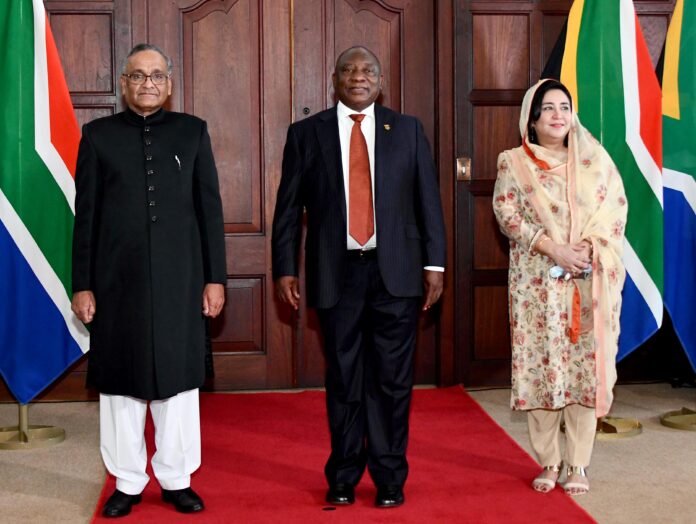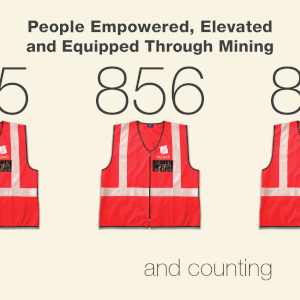By Thobile Jiwulane
South Africa has become renowned as a bold intervening country in the Palestine-Israel conflict – a move that could see it invited to participate as a prominent player in efforts aimed at resolving new and long-standing territorial disputes in other regions globally.
This symbolises a standing ovation to South Africa’s growing role in international diplomacy and conflict resolution efforts world-wide. The latest suggestion was for South Africa to get involved in mediating the long-running Kashmir dispute between India and Pakistan.
The Kashmir conflict, which has persisted since India and Pakistan gained independence from the British in August 1947, is recognised as one of the longest-running territorial disputes in modern history. This intermittent conflict has attracted the attention of various international stakeholders. Some in South Africa and Pakistani officials and expatriates believe that Pretoria could play a role in an attempt to seek a resolution to the issues surrounding Kashmir.
South Africa’s mooted involvement in the Kashmir issue aligns with the vision of the country’s late Nelson Mandela, a prominent freedom fighter and global icon. After spending 27 years in prison and becoming the first democratically elected President of South Africa, Mandela underscored the importance of resolving the Kashmir dispute through peaceful dialogue. During the Non-Aligned Movement summit held in Durban in late 1998, he expressed a view that the Kashmir situation was a significant concern for all and emphasised the necessity to find a lasting negotiated resolution for it.
Nelson Mandela’s statement regarding South Africa’s potential role as a mediator in Kashmir remains unfulfilled, even 27 years later. On Wednesday, a gathering held in Johannesburg that brought together various stakeholders from South Africa, along with Pakistani expatriates residing in the country, mulled over the idea. The event, organised under the auspices of local civil society organisations and activists, in collaboration with the Pakistan High Commission to South Africa, was organised to brief civil society on the latest fight that erupted between India and Pakistan on May 6-7, targeting the Pakistani-administered areas in Kashmir by Indian security forces. India claimed Pakistan was behind the terrorist attack on a group of tourists on April 22 in the town of Pahalgam in the Indian-administered part of Kashmir.
During the meeting, Fahad Amjad, the Acting High Commissioner to South Africa, told the attendees about the conflict. He touched on the contentious question of Jammu and Kashmir— an area that remains disputed and is primarily under Indian administration. The participants collectively stressed the urgency of realising Mandela’s vision for peace and mediation in the dispute.
They asserted that the current government of South Africa has a pivotal role to play in actualising this commitment, advocating for diplomatic approaches that could foster reconciliation and a lasting, peaceful resolution to the tensions in Kashmir and beyond.
Some civil society members felt that, while they agreed that South Africa could play the role it did to take an unequivocal stand in the Middle East when the country took Israel to the International Court of Justice in The Hague, it wouldn’t be good to use South Africa in this case. They argue that with both South Africa and India being members of BRICS, for Pretoria to drag India to the ICJ could cause conflict within the economic bloc of developing nations. Rather a non-BRIC country could be roped in to do this.
One seminar attendee suggested the task should be given to Canada, which would be an ideal country to approach to open a case against India at the ICJ over the alleged atrocities it committed in Jammu and Kashmir. They expressed that Canada would be more willing because of the ongoing diplomatic spat between it and New Delhi over a series of issues. Chiefly among their disputes is Canada’s claim that Indian agents were behind the murder, on Canadian soil, of Hardeep Singh Nijjar, a prominent figure in the Khalistan movement.
In the aftermath of the conflict, both parties engaged in retaliatory measures, including the expulsion of both sides’ diplomats and the suspension of trade agreements. Observers noted that, due to the escalation of tensions, Canada might be more inclined to pursue an ICJ case against India than against any other country.
Both the Canadian and South African options were considered as a package to be presented to the officials in Islamabad and Pretoria, and there may even be an opportunity to open discussions with Canada about its potential role.
So far, this is a matter and suggestion of civil society and activists in South Africa and not the official position of Pakistan or the South African authorities. However, this is also contingent on whether the Pakistani authorities are willing to accept the proposal. This was mooted out of concern about the conflict that some had concluded “would never end until certain measures were followed”, including holding those responsible for the loss of life in Jammu and Kashmir accountable for their actions.
The inclination towards fulfilling Mandela’s vision for a peaceful resolution to the Kashmir conflict is not without merit. Recently, South Africa’s Department of International Relations and Cooperation expressed its willingness to mediate. Mandela’s desire for Kashmir remains, and South Africa is still committed to seeing it realized.
The country gained fame when it avoided a bloody resolution of its own racial conflict when it opted for a negotiated political settlement in 1994. Prior to this, bloodbath and massive loss of innocent lives were envisaged but Mandela insisted on strengthening of dialogue amidst opposition from the white right-wing on the one hand and on the other hand from the ANC’s militants, who were intent on a revolutionary overthrow of the white apartheid rule. The outcome of the multiparty talks was a constitutional democracy that everybody now enjoys in the country. Ironically, the process was facilitated and presided over by the incumbent president of South Africa, Cyril Ramaphosa, who was then the ANC secretary-general.
Today, the country continues to carry the racial peace flag with the establishment of a multiparty government of national unity (GNU) after the May 2024 general election. Since 1994, administrations after another of the then ruling ANC exported the idea of peaceful resolution of conflicts to other parts of Africa. It led peace talks in Burundi, South Sudan, Zimbabwe, Lesotho, the Democratic Republic of Congo and Ethiopia. South Africa’s Ramaphosa and Roelf Meyer, his opposite number as co-chief negotiator in the pre-1994 democratic talks, along with diplomat and former Finnish President, Martti Ahtisaari, participated in efforts to bring peace in Northern Ireland. Meyer went further with the peace mission tasks to Rwanda and Kosovo, among others.
Due to its peaceful political settlement, South Africa has positioned itself as a prominent location for facilitating peaceful negotiations to resolve conflicts in Africa, a legacy associated with Nelson Mandela. Pretoria’s expertise in global conflict resolution positions it uniquely to facilitate an end to the long-standing conflict between Pakistan and India over Jammu and Kashmir.


